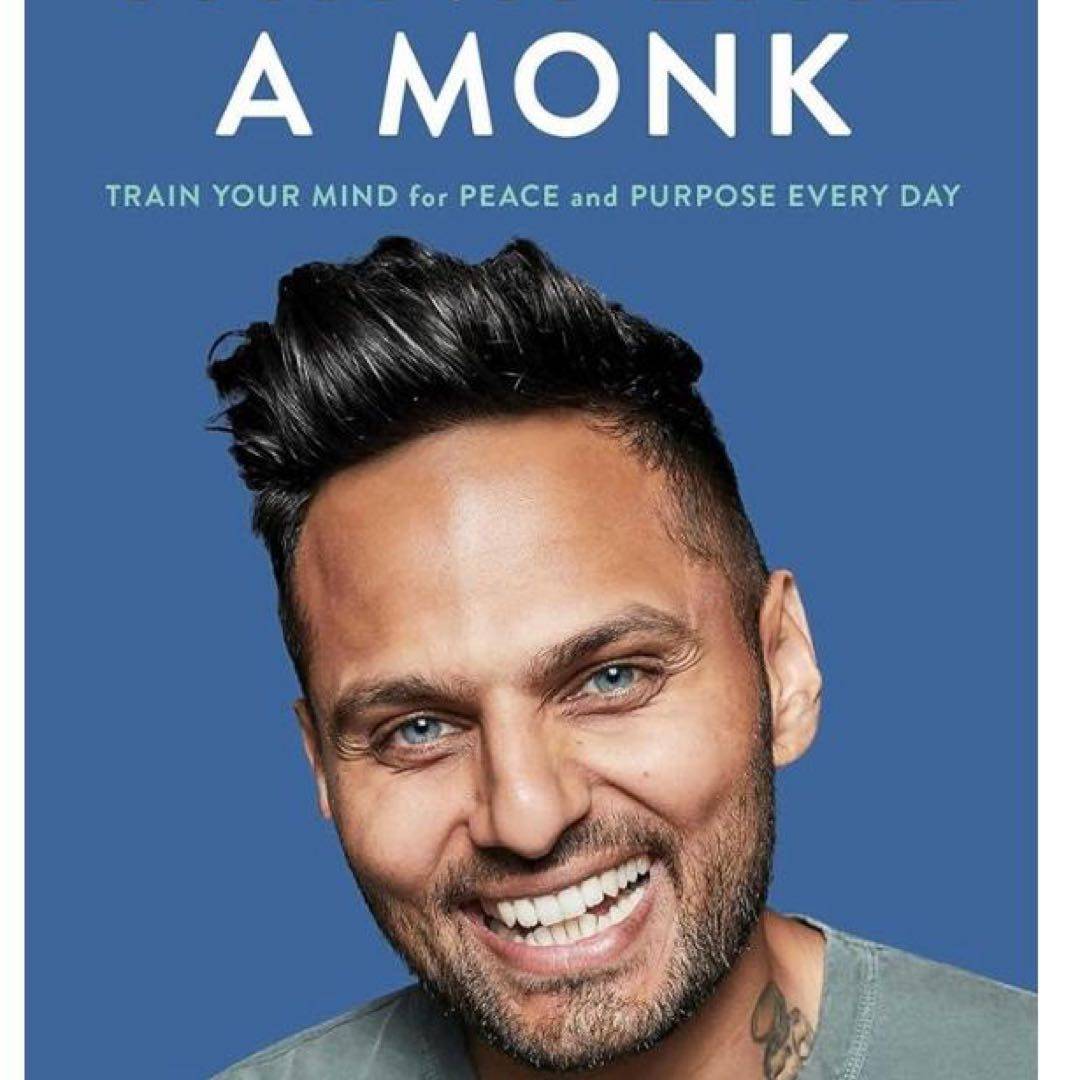
Being present is there only way to live a truly rich and full life.

Being present is there only way to live a truly rich and full life.
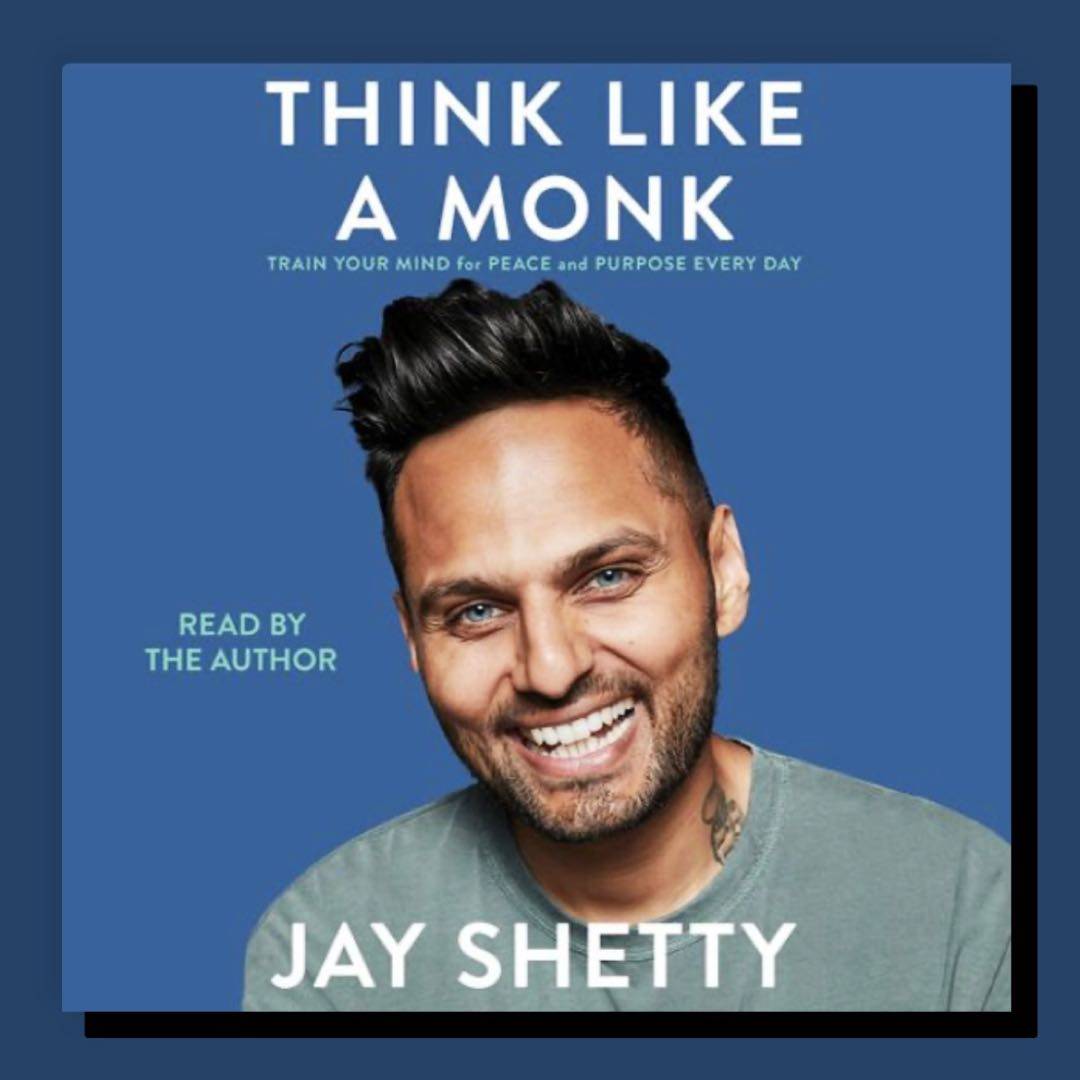
I liked the first half better than the second. What stuck with me: I‘m not who I think I am; I‘m not who you think I am; I‘m who I think you think I am. So…learn to filter the views/opinions of others
“Dharma is passion in the service of others. Your passion is for you. Your purpose is for others. Your passion becomes a purpose when you use it to serve others.”
“The focus is on the process, not the outcome”
“We tried to live up to what we think others think of us,even at the expense of our values”
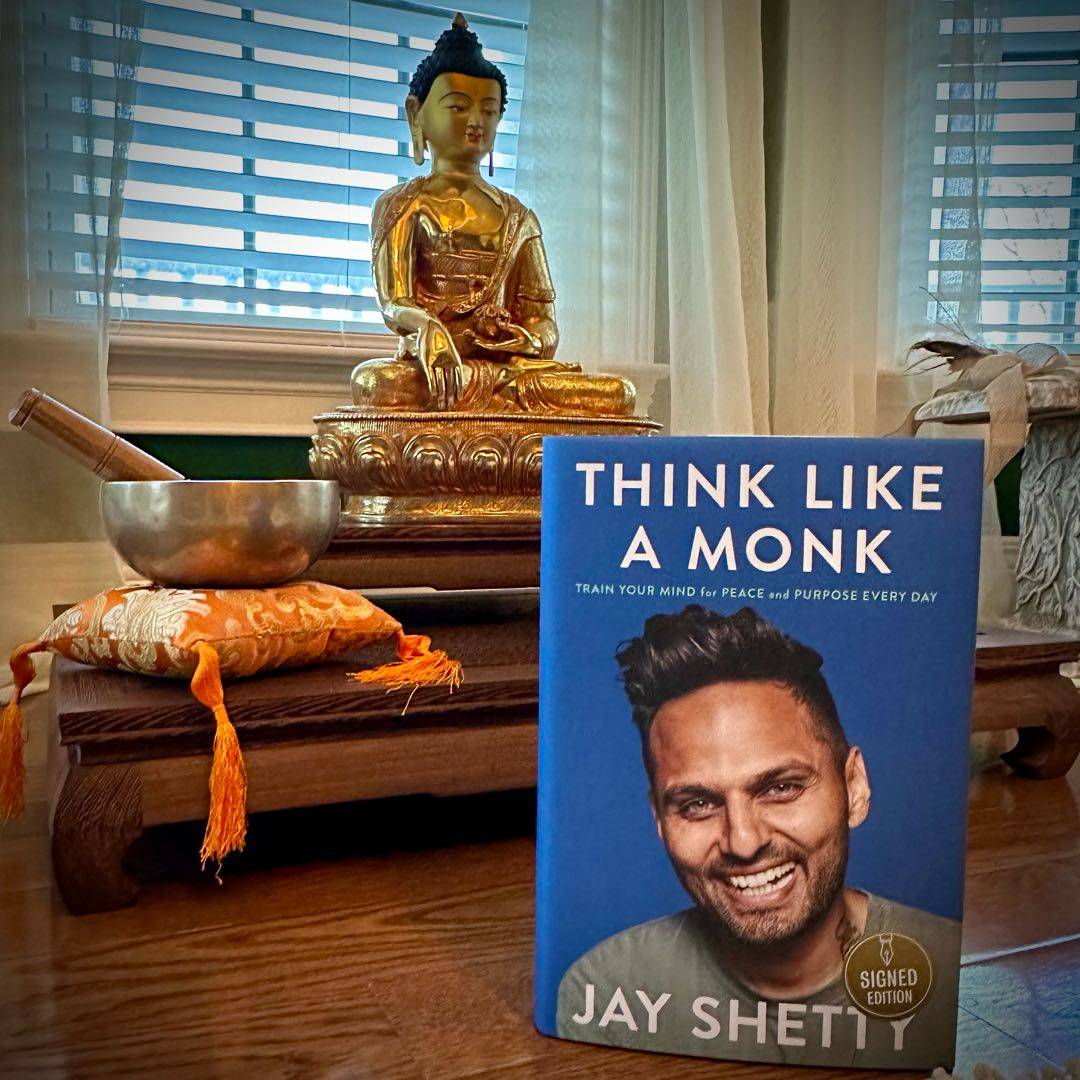
Jay Shetty shares about his upbringing to his college years. He explains why he chose to head to India to become a monk, where he devoted the next three years of his life. As Jay takes the reader through each of the concepts, he explains how he learned the concept during his time as a monk. He also makes each concept very relatable regardless of a person‘s demographics or spiritual beliefs. 🕉️
Full review at https://abookandadog.com
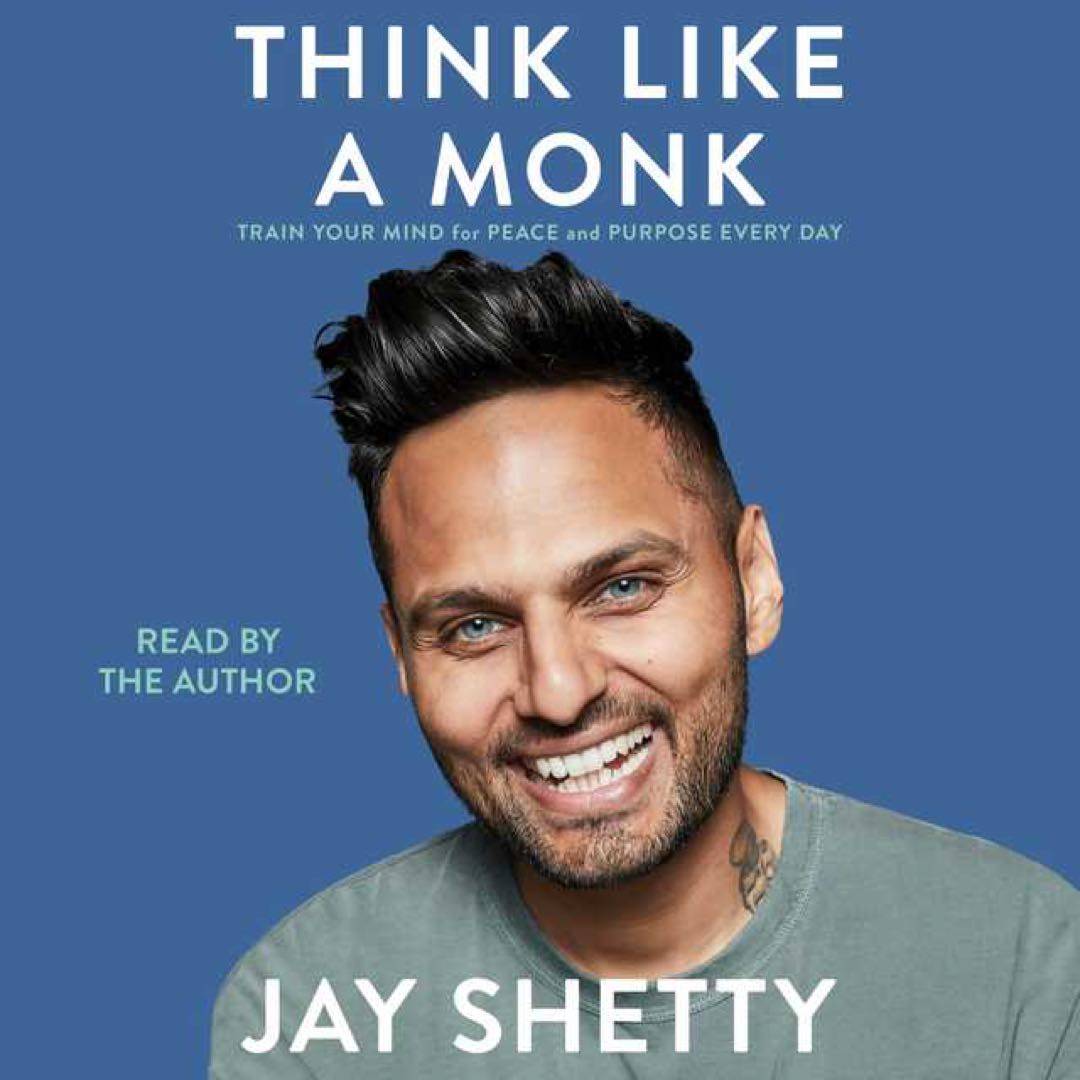
I really loved this book. I don‘t agree with everything in here, but I did get a lot out of it. I started meditating again and it really helped me to decide to choose a different response to other people‘s drama and anger.
#JayShetty #ThinkLikeAMonk #audiobook #busbook
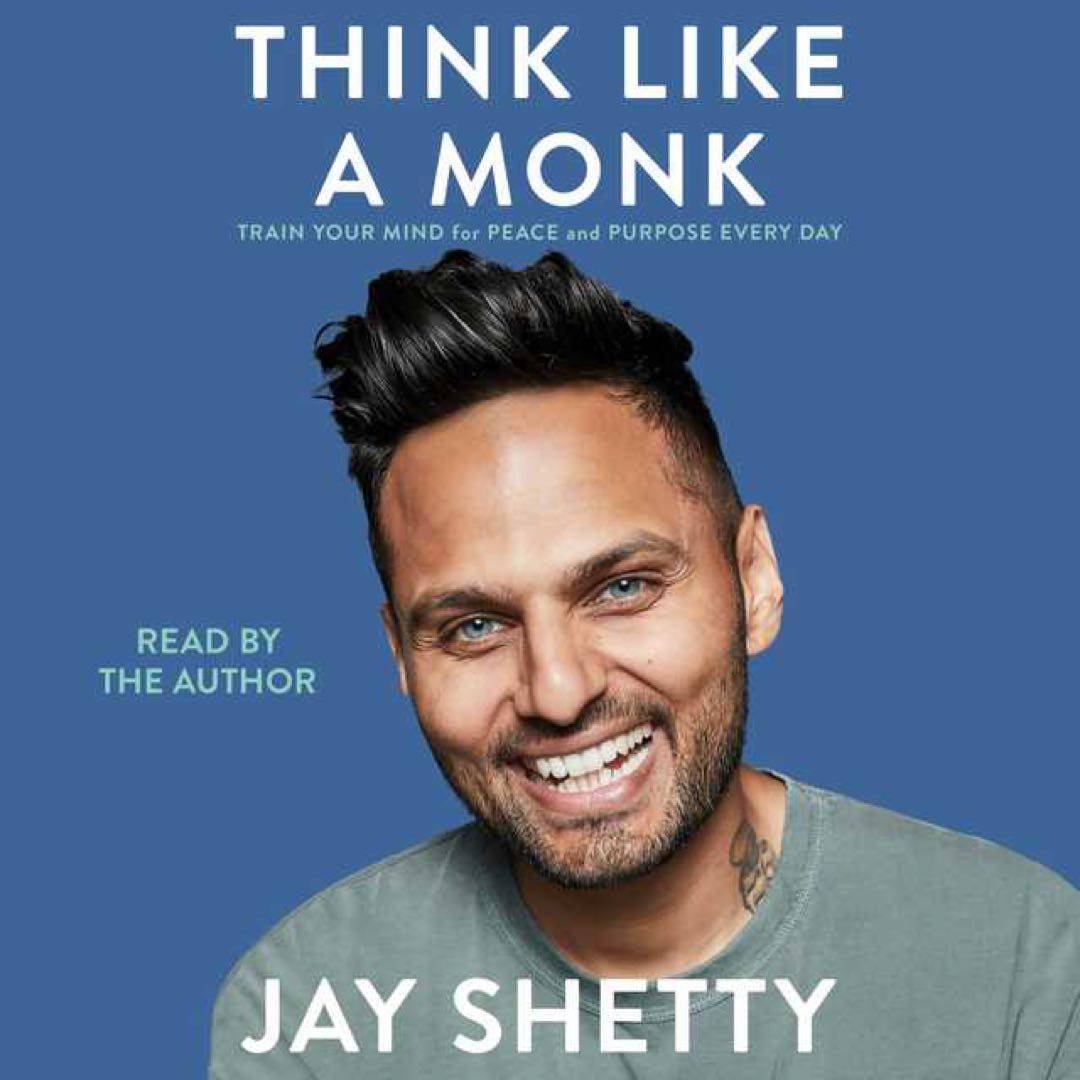
It‘s has been a crazy few days/week here, but this is really bringing my mind down from all that overstimulation and helping me find a sense of calm.
#JayShetty #ThinkLikeAMonk #audiobook #busbook
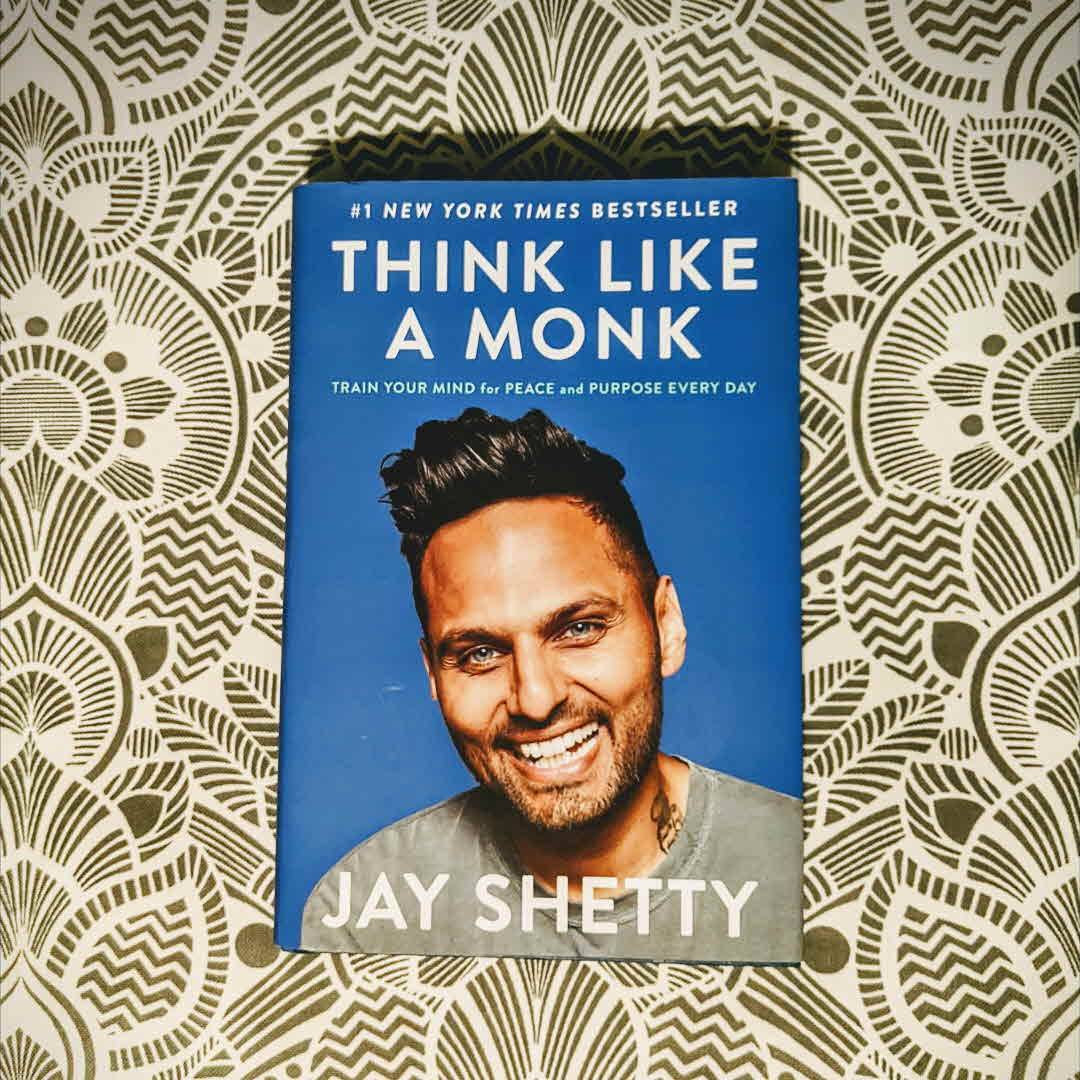
5/5⭐
I do not read much about self improvement. I picked this up mainly because I enjoy Shetty's Instagram and podcast. I'm so happy I did. I loved this book and highlighted almost every other page.
It's full of advice to guide you towards peace, finding your purpose, and the importance of serving others.
It's nothing groundbreaking but Shetty strikes a great balance between his personal story, research, and quotes from inspirational sources.
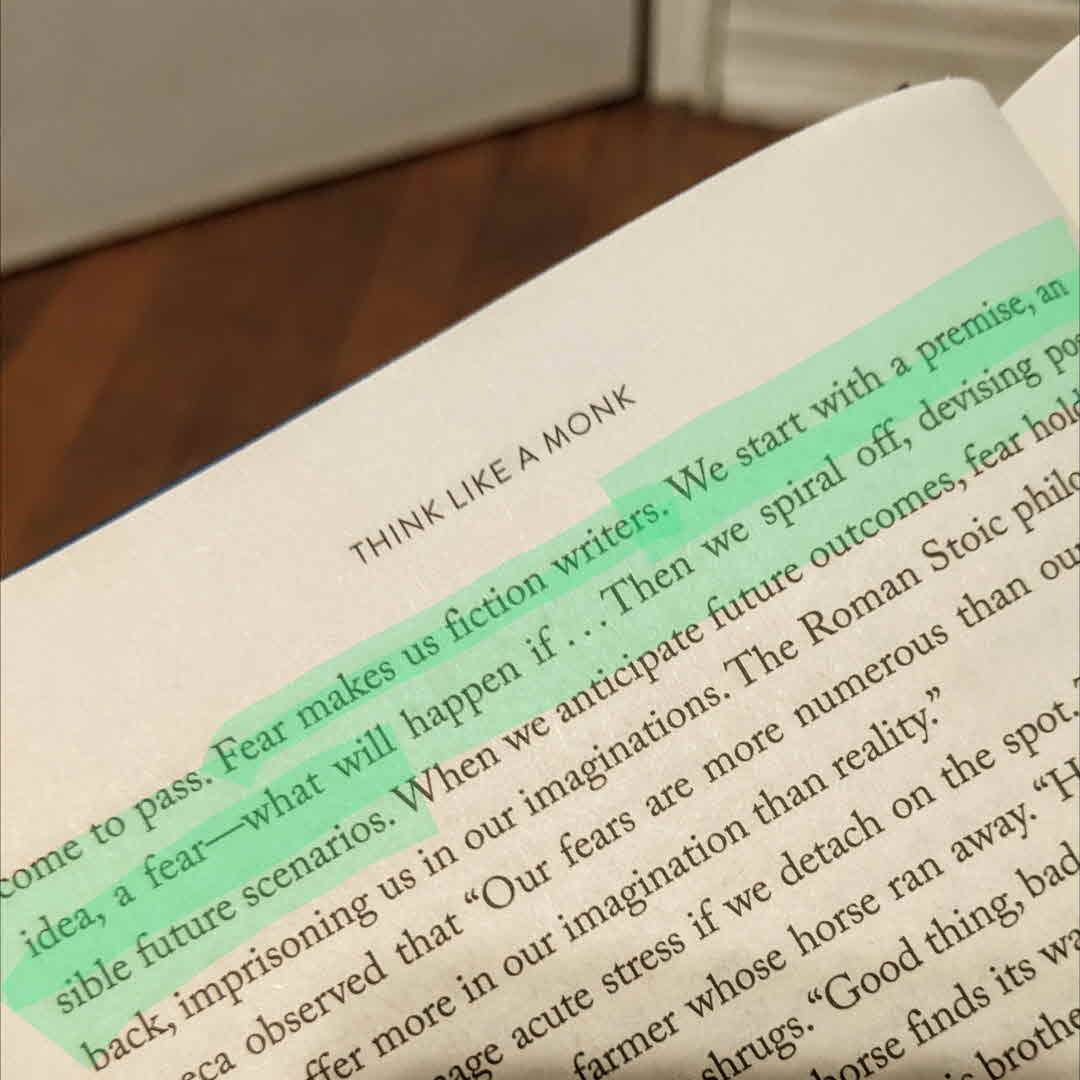
🔸Fear makes us fiction writers.
We start with a premise, an idea, a fear
---what will happen if...
Then we spiral off, devising possible future scenarios.🔸
Truth.
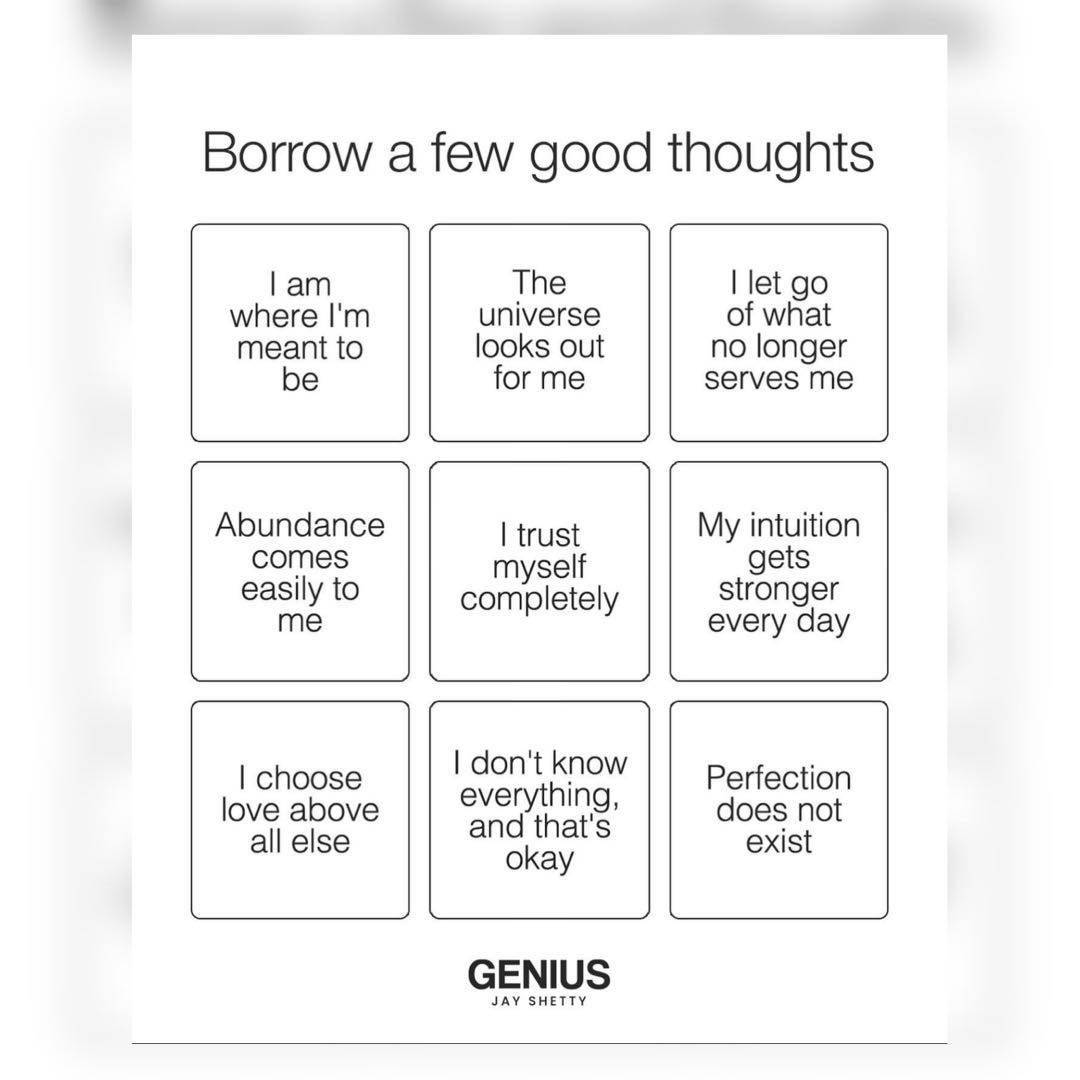
Positive thoughts for everyone 🤗
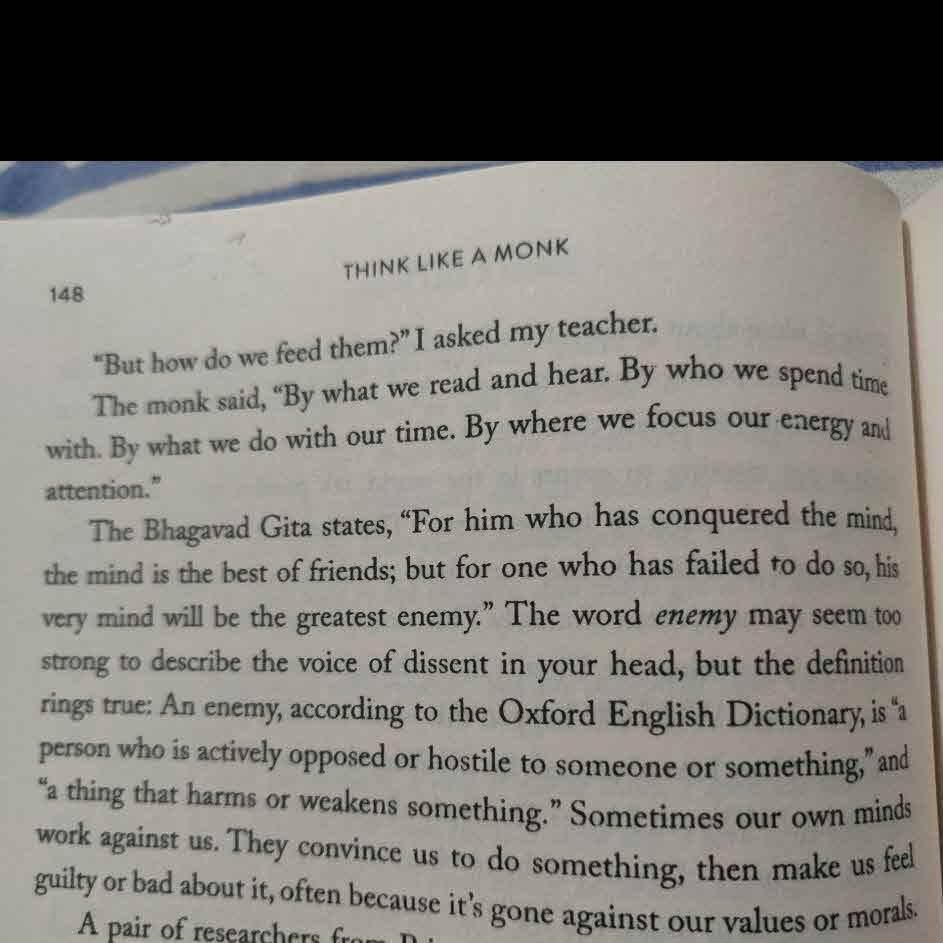
It's a wonderful book that teaches you how to treat your mind... There are few aspects that I disagree, even though I am a spiritual person.. Loved those parts related to Bhagwath Geetha .. The book does a great deal in majority of mental aspects, but it doesn't put lots of effort on Self Respect... Maybe thinking like a monk is the greatest way you can treat yourself, this is my review based on the reading
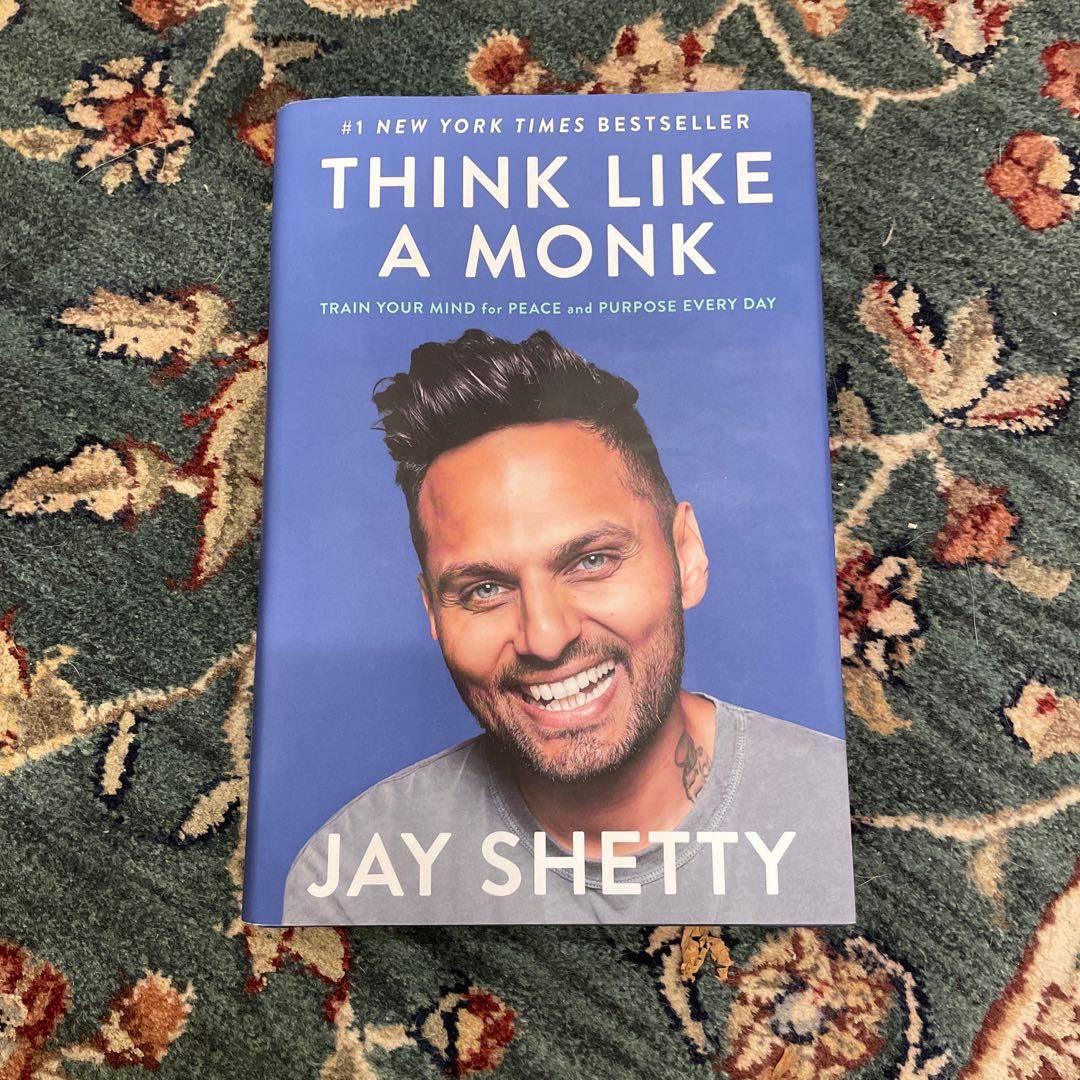
Today I finished my 30th book of 2021 which we‘re also reading in book club! I‘ve read a lot of self-help books and this is definitely the deepest one I‘ve read. It is very well written as he gives insight on what he learned from his time being a monk. He is no longer a monk but a lot of what he learned still applies to his daily life and he provides wonderful steps and advice on how we can live a more meaningful life by changing the way we think!
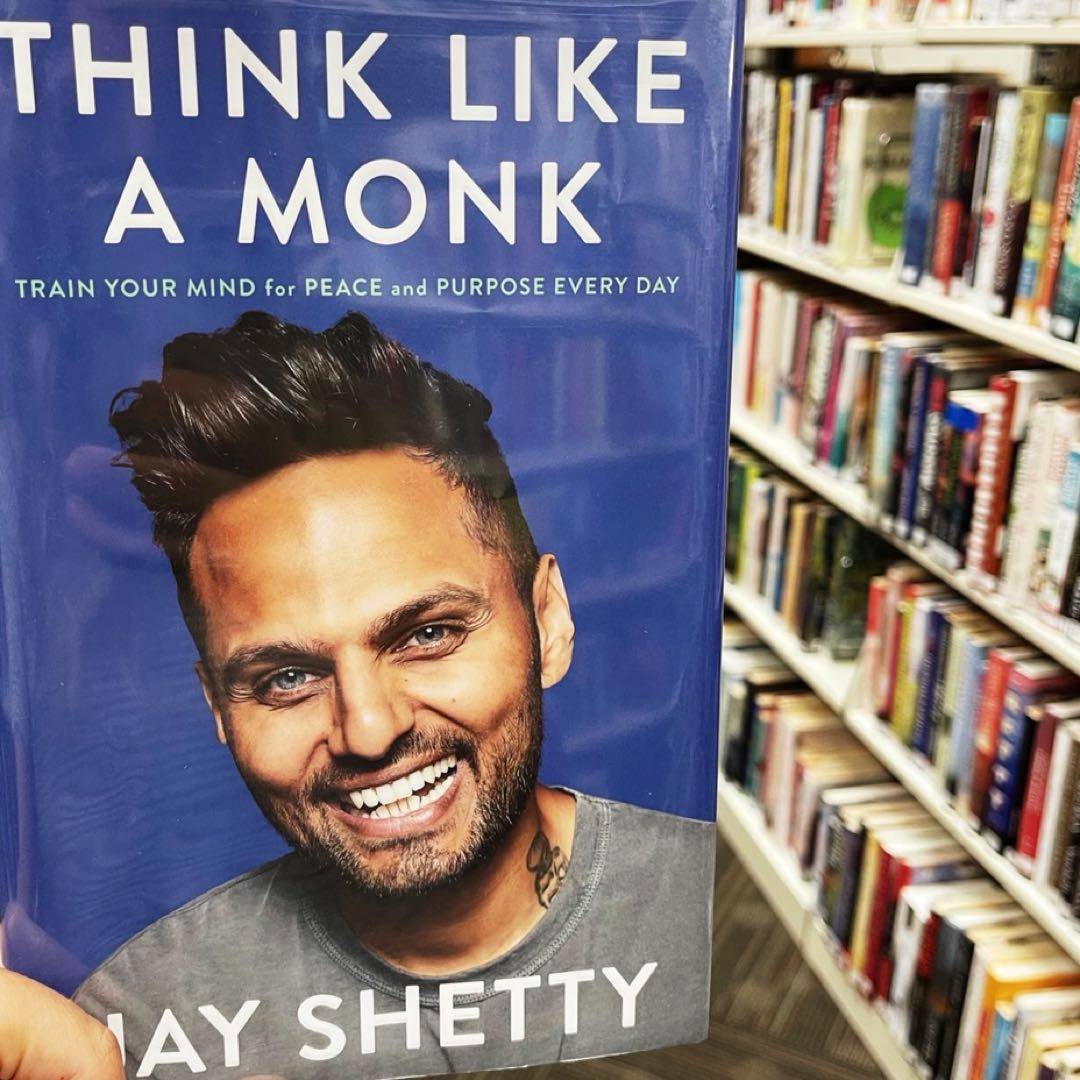
I listened to the audiobook narrated by the author which was perfection. I really loved this book and have taken away some life-changing advice that I have been applying to my thought process. Shetty was a practicing monk and shares the wisdom he acquired in this book.
I‘m inspired to take a sharper focus on what I am moved to do in this life. Personally, I‘m passionate about conservation work and need to do more of it on a grander scale.

This book is spot on. Humbling. Life changing. Relatable. Best book i've read so far.
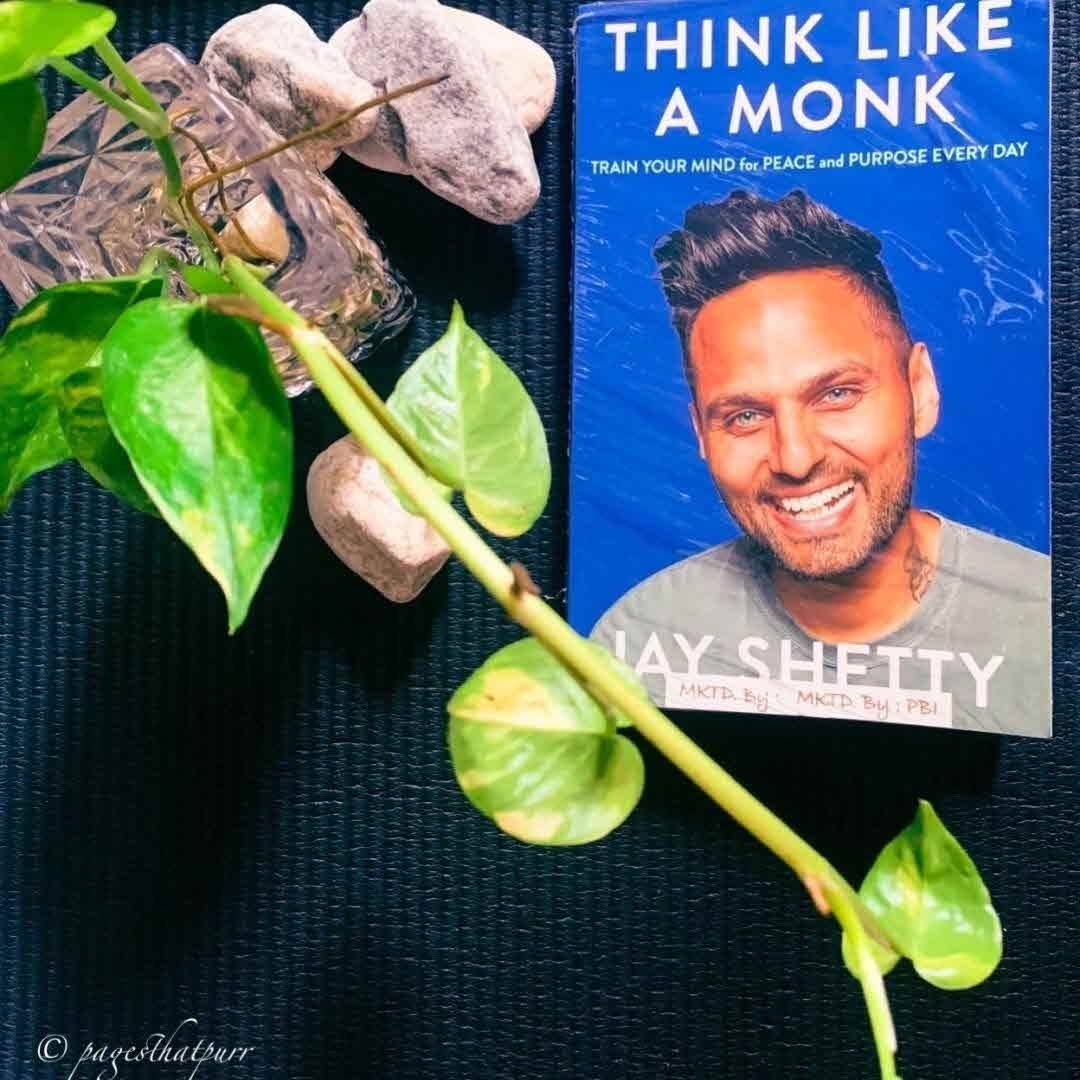
https://www.instagram.com/p/CRLIYAgsXk8/?utm_medium=copy_link
When it comes to happiness and joy, there is always a seat with your name on it.
p37 Think Like A Monk by Jay Shetty
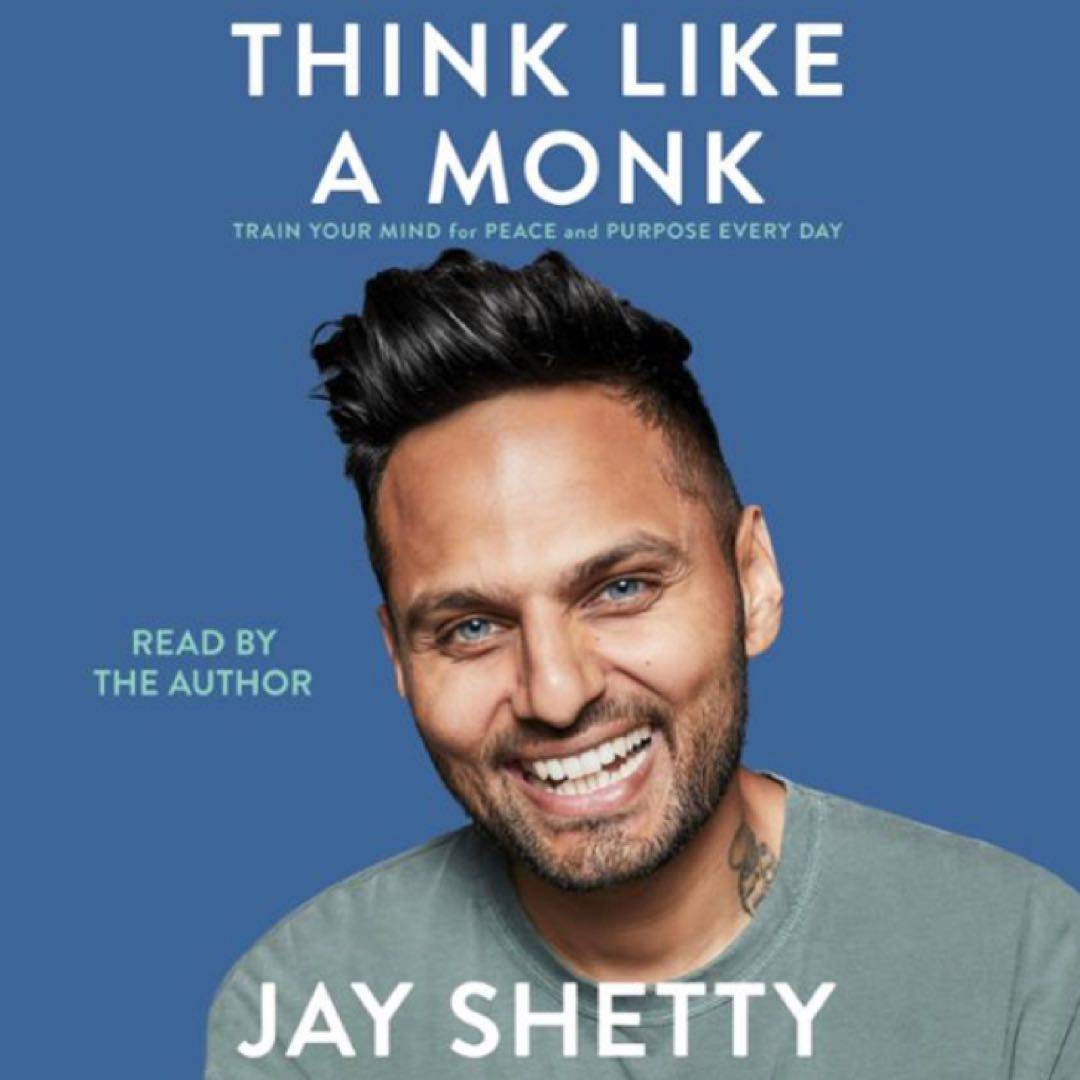
Nothing much new or advanced......Meh
I‘m not sure many readers will find something brand new here but I like the way he approaches all of this. A pick for me at least.
Your identity is a mirror covered with dust. When you first look in the mirror, the truth of who you are and what you value is obscured. Clearing it may not be pleasant, but only when that dust is gone can you see your true reflection.
How can we recognize who we are and what makes us happy when we‘re chasing the distorted reflection of someone else‘s dreams?
Our identity has so many layers that we lose sight of the real us, if we ever knew who or what that was in the first place.
Our identity is wrapped up in what we think others think of us.
“I am not what I think I am, and I am not what you think I am. I am what I think you think I am.”
Charles Horton Cooley
It is better to live your own destiny imperfectly than to live an imitation of somebody else‘s life with perfection. —Bhagavad Gita 3.35
Our minds can either elevate us or pull us down.
Our culture and media feed us images and concepts about who and what we should be, while holding up models of accomplishment and success. Fame, money, glamour, sex—in the end none of these things can satisfy us.
Albert Einstein said, “If you can‘t explain something simply, you don‘t understand it well enough.”
It was as if an empire spoke to us, nothing small or unworthy, but large, serene, consistent, the voice of an old intelligence which in another age and climate had pondered and thus disposed of the same questions which exercise us.
I didn‘t want to know humility or compassion and empathy only as abstract concepts, I wanted to live them. I didn‘t want discipline, character, and integrity to just be things I read about. I wanted to live them.
The problem was that at the time, I didn‘t have any goals apart from getting a good job, getting married one day, maybe having a family—the usual. I suspected there was something deeper, but I didn‘t know what it was.
Becoming a monk is a mindset that anyone can adopt.
“A layperson who is consciously aiming to be continuously alive in the Now is a monk.”
I felt the urge to be around people who had the values I wanted, not the things I wanted.
He'd given up the life the world had told me we should all want. But instead of being an embittered failure, he appeared joyous, confident, and at peace.
If you want a new idea, read an old book. —attributed to Ivan Pavlov